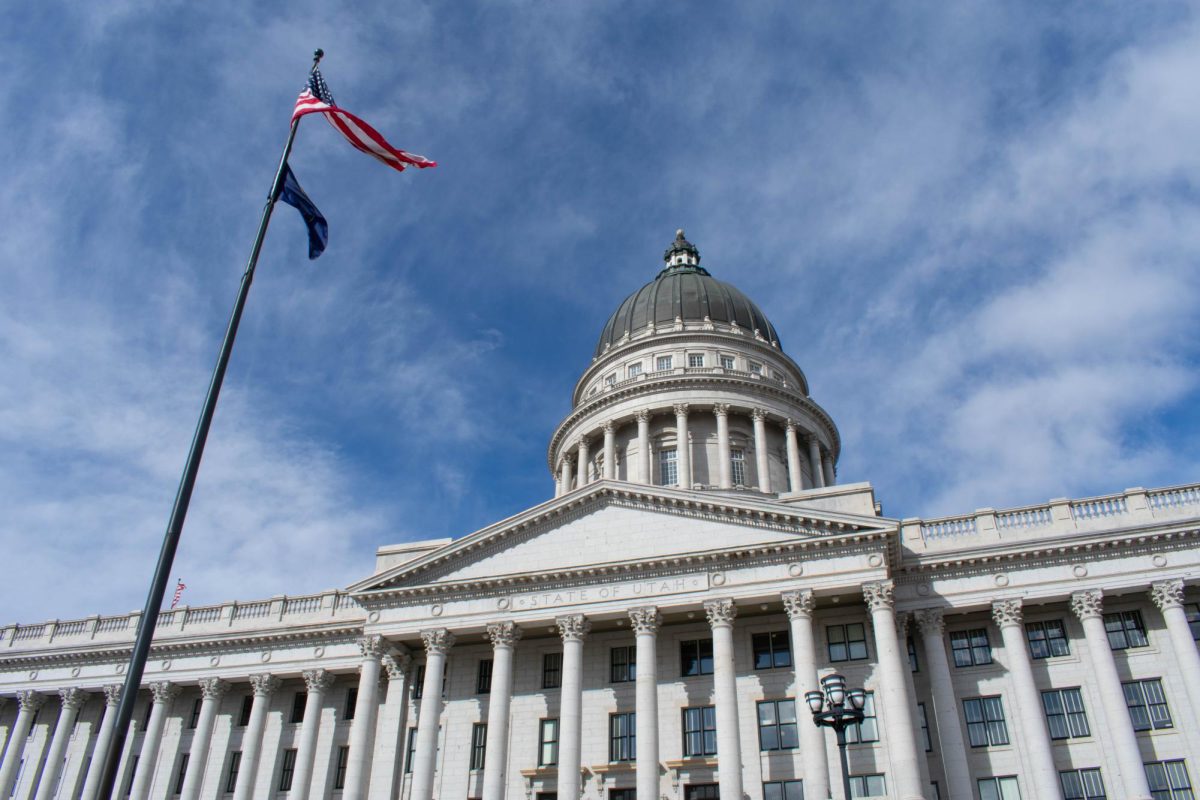Learning Abroad Office Works to Maintain International Experience
February 10, 2021
With the pandemic severely limiting international travel, Learning Abroad at the University of Utah has been working to make opportunities for global engagement that do not require getting on a plane.
“Because of the pandemic and because of the University of Utah’s restrictions for students, faculty and staff, we haven’t been operating under the normal circumstances that we would be,” said Daniel Watson, the marketing and technology coordinator for Learning Abroad.
When COVID-19 initially hit in March, a majority of students who studied abroad in Spring 2020 chose to come home, while some did remain in their country of study. The U was able to subsidize a majority of the costs incurred by students whose programs were canceled or had to return early.
“The University of Utah was able to, with CARES (The Coronavirus Aid, Relief, and Economic Security) Act funding subsidize those costs pretty significantly,” he said.”That was really great to have that ability.”
However, the CARES Act funding may not be available in the spring and summer, so the Learning Abroad office is trying to be more careful. In the event of a cancellation, the office wants to make sure students will be fully refunded.
“The last thing we want to do is be having students paying for something when they’re not actually going on the program,” he said. “So we were really happy that in the fallout after the spring program cancellations with COVID kind of shutting down international travel worldwide that we were able to refund students for those costs.”
While most in-person programs for the Spring 2021 semester have been canceled, students have been able to travel to the U’s Asia Campus in Incheon, South Korea.
For those who have not been able to travel abroad, the office offers many virtual opportunities for global engagement through their partnerships with affiliate providers in the study abroad space.
“They’ve been able to organize virtual programs which would be your student would be here in the U.S. but tuning into lectures from someone who’s in Florence, Italy,” he said.
Watson said students have expressed more interest in doing an internship rather than taking classes.
“We had a student this past fall who did a CEA (Cultural Experiences Abroad) virtual internship that was in Buenos Aires. So they would be here in the U.S. but would be connected with the business there,” he said.
While the potential for students to be vaccinated makes Learning Abroad hopeful for a more normal summer semester, they still have to adhere to the U’s international travel guidelines.
“Our hope is that summer is good and academic year 2021-2022 we’re hoping that students will be able to participate in more meaningful, long term programs than they have this past year,” he said.
Watson wants students to know that while they may not be able to fly to another country for a study abroad opportunity, they are able to virtually travel at a fraction of the cost.
“Don’t necessarily be too dejected by the fact that you might not be able to physically be abroad, that will return at some point,” he said.
An International Student Experience
While some students have been able to leave the U and go abroad, other students who are coming from other countries to study at the U have had trouble entering the country.
Elaheh Safaei, an international student from Iran getting her Ph.D. in chemical engineering, said it took her six months to get a date for a visa interview.
“We have lots of difficulties to arrive in Utah because the first step is that we should have the U.S. visa. Because of the pandemic, all U.S. embassies were closed,” she said.
After getting her visa, she had to stay in Armenia for two weeks before coming to Utah.
Safaei said regardless of the pandemic, it is hard for Iranian students to get visas due to the political conflicts between Iran and the U.S.
“And there are lots of students, I know them, they’re waiting for an appointment, they’re waiting through the administrative processes of their visas. They had to defer this semester,” she said.
While getting her visa was a long and difficult process, she said the U has been very accommodating.
“We had a graduate advisor in the department of chemical engineering, she has a lot of information. The University of Utah was very flexible because I also deferred the fall semester to the spring,” she said. “They did whatever they could, and I’m thoroughly satisfied.”











